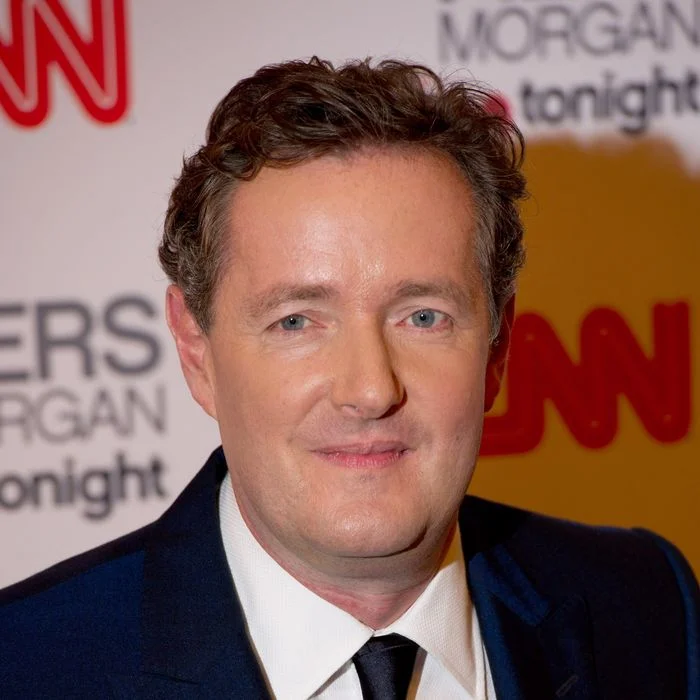Piers Morgan, a British journalist, television presenter, and former editor of the Daily Mirror, made international headlines when he was fired from CNN in 2014. The news came as a shock to many, as the outspoken presenter had been a significant part of the network’s programming for three years. In this article, we will dive deep into the reasons behind Piers Morgan’s firing, the public’s reaction, and the impact of his controversial departure on the media landscape.

Piers Morgan's Career at CNN
Before discussing his abrupt exit, it’s crucial to understand Piers Morgan’s career trajectory at CNN. In 2011, Morgan replaced the legendary talk show host, Larry King, with his show “Piers Morgan Tonight.” The program aimed to engage audiences with interviews, debates, and news analysis. However, the show was met with mixed reviews and struggled to maintain consistent viewership.
Despite its challenges, “Piers Morgan Tonight” managed to generate buzz with high-profile interviews featuring personalities like Oprah Winfrey, Warren Buffett, and former President Bill Clinton. Morgan’s confrontational style and provocative questions garnered attention, but it ultimately led to his downfall at the network.
The Gun Control Controversy
The primary reason for Piers Morgan’s firing from CNN was his outspoken views on gun control. In the aftermath of the Sandy Hook Elementary School shooting in December 2012, Morgan became a fervent advocate for stricter gun control measures in the United States. His impassioned stance on the issue created a divide between him and his viewers, especially those with strong pro-gun sentiments.
Morgan’s unwavering commitment to the cause culminated in a heated on-air debate with radio host Alex Jones in January 2013. The interview quickly devolved into a shouting match, causing many to question Morgan’s journalistic integrity and professionalism. The incident made headlines and further alienated Morgan from his American audience.
Falling Ratings and Public Backlash
The gun control controversy significantly impacted “Piers Morgan Tonight’s” ratings. With each passing month, the show’s viewership continued to decline, eventually plummeting to an all-time low. The dwindling numbers reflected the public’s growing dissatisfaction with Morgan’s confrontational approach and his focus on a contentious issue.
Moreover, a petition on the White House’s “We the People” platform, calling for Morgan’s deportation, gained more than 100,000 signatures. This demonstrated the level of public backlash against the British journalist, further complicating his position at CNN.
The Final Straw
The final nail in the coffin for Piers Morgan’s career at CNN was his interview with transgender advocate Janet Mock in February 2014. The conversation was deemed insensitive and offensive by many, with Morgan facing accusations of misgendering and objectifying his guest. The incident garnered widespread criticism and further damaged Morgan’s already tainted reputation.
CNN’s president at the time, Jeff Zucker, was left with no choice but to cancel “Piers Morgan Tonight.” On February 23, 2014, Morgan announced the end of his show, marking the end of his tumultuous tenure at the network.
Public Reaction and Morgan's Response
The news of Piers Morgan’s firing from CNN was met with mixed reactions from the public. Some celebrated the departure of a figure they perceived as divisive and sensationalist, while others lamented the loss of a passionate journalist unafraid to tackle controversial issues.
Morgan himself expressed disappointment in his show’s cancellation but remained defiant in his beliefs. In a tweet following the announcement, he stated, “I wouldn’t crack the champagne just yet, @NRA – I haven’t finished with you.”
The Impact on CNN and the Media Landscape
Piers Morgan’s firing from CNN left a void in the network’s primetime lineup. His departure signaled a shift in the network’s approach, moving away from controversial, opinion-driven journalism and focusing more on traditional news reporting. The decision to replace “Piers Morgan Tonight” with a show hosted by Anderson Cooper, known for his balanced reporting, was a clear indication of this strategic shift.
Moreover, Morgan’s exit sparked a broader conversation about journalistic ethics and the role of opinion-based journalism in mainstream media. As networks and journalists continue to navigate the fine line between advocacy and reporting, the case of Piers Morgan serves as a cautionary tale.
Piers Morgan's Post-CNN Career
Despite his controversial exit from CNN, Piers Morgan’s career in media continued to flourish. After a brief stint as an editor-at-large for the Mail Online, Morgan returned to British television in 2015. He joined ITV’s breakfast program, “Good Morning Britain,” as a co-host alongside Susanna Reid. Morgan’s confrontational style and unapologetic opinions continued to generate headlines, making “Good Morning Britain” one of the most talked-about morning shows in the UK.
Morgan’s tenure at “Good Morning Britain” also came to an abrupt end in March 2021, following an on-air dispute about Meghan Markle and Prince Harry’s interview with Oprah Winfrey. Since then, Morgan has continued to share his views on various platforms, including a column for the Daily Mail and appearances on talk shows.
Conclusion
The story of Piers Morgan’s firing from CNN is a complex and multifaceted one. His unwavering stance on gun control, declining ratings, public backlash, and the controversial Janet Mock interview ultimately led to his departure from the network. Morgan’s case serves as an essential lesson for journalists and media organizations alike, highlighting the challenges and potential pitfalls of opinion-driven journalism in an increasingly polarized world. As the media landscape continues to evolve, the story of Piers Morgan’s controversial exit from CNN will likely remain a significant point of reference for years to come.
